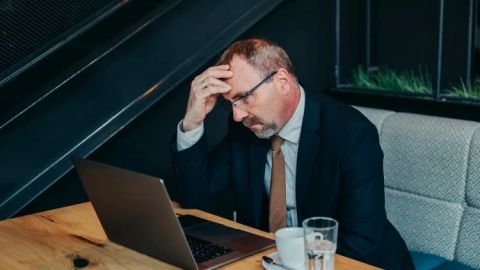How this New Orleans grocery store owner is trying to sustain his community
The Lower Ninth Ward of New Orleans was devastated by Hurricane Katrina in 2005, and the novel coronavirus pandemic has delivered another painful blow. Grocery store owner Burnell Cotlon has long been determined to sustain his community, most of which has nowhere else to turn for food. He shares his experience trying to keep his “phenomenal” customers fed during a period of great distress with our partners at PBS Newshour.
TRANSCRIPT
Judy Woodruff:
As we close tonight, another perspective on the economic crisis created by the coronavirus pandemic.
We first met Burnell Cotlon in 2015, reporting on New Orleans 10 years after Hurricane Katrina. The storm destroyed much of the Lower Ninth Ward, a mixed community of working class and low-income families.
And rebuilding there was long delayed, but Burnell Cotlon had a vision.
Burnell Cotlon:
The reason why this is such an important grocery store, I have to go back many, many years.
Before Hurricane Katrina, we had over 15,000 people here in the Lower Ninth Ward. We had stores. We had houses. And Hurricane Katrina, unfortunately, wiped everything off.
The customers that come through these doors are phenomenal. They are beautiful, beautiful people. They are single mothers, or families, you know, kids. It’s everybody. It’s like a big family back here. It’s a poor part of town. But I love all my customers.
The closest grocery store that we have, it’s Walmart in the next city. You actually have to catch three city buses.
When I first realized that money was getting tight was when the coronavirus had got started. And, unfortunately, they had to shut everything down. And I do understand why for health reasons. And I agree with it, because it’s about saving lives.
But that hurt everything, because the people here in New Orleans, a large percentage of them is in housekeeping or the seafood industry, hotel industry. That’s where the bulk of my customers work. And when they shut everything down, there’s no more money being circulated.
I have one of my favorite customers. She’s a grandmother. She has three grandkids. She came into my store. She had her grandkids with her. And she got — I will never forget this — a gallon of milk, a loaf of bread, some baloney, and a couple of candy bars.
When she went to swipe her card, she didn’t have enough. And she broke into tears and cried.
What I did — I know I shouldn’t have, but I’m going to go ahead and admit it. I came from behind my cash register and I went around and I gave her a hug.
I — I immediately got a notepad, and I started a journal. And I wrote down her name and the amount of money that she was short. So, I started my ledger. And it hurts. It hurts, because it caused me to be a little bit behind on my own personal bills.
But I found my purpose. And my purpose is service. This is all out of my pocket. I live here. This is my community. And my community was hurting. So, I just went out and did it. And I can’t turn them down, because there’s nowhere else for them to go.
If I had to compare what New Orleans as a whole went through as Hurricane Katrina, and now today, 2020, with the coronavirus, it’s like — it’s like an invisible monster. The coronavirus is much, much worse.
At least, with a hurricane, we would get notice. You have a chance to evacuate.
And I try my best to tell them, if we can get through Katrina, we can get through anything. We’re going to be OK. And I try my best to tell that to all my customers that come in here.

























